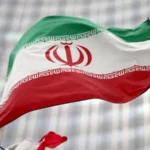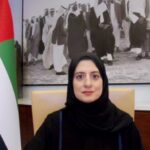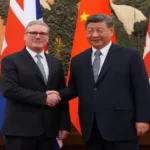Ahmad Al Shara, the de facto leader of Syria, recently met with representatives of the US-backed Syrian Democratic Forces (SDF) in an effort to integrate different militias into a new national army and restore stability. This meeting is a step by the interim government to address the country’s fragmented security landscape.
The discussions in Damascus were described as “positive” by a member of Mr. Al Shara’s group, Hayat Tahrir Al Sham, which leads the interim government. These talks come amid ongoing clashes between the SDF and Turkish-backed groups in Manbij, northern Syria.
Known by his former alias, Abu Mohammad Al Jawlani, Mr. Al Shara faces the challenge of bringing order after the fall of the Bashar Al Assad regime on December 8, which marked the end of a 13-year civil war. However, the new administration faces significant security challenges.
Mr. Al Shara has promised to disarm militias or integrate them into the national army. This includes rebel groups that supported his forces and others like the Turkistan Islamic Party, known for its extremist ideology. Some militias, like the Syrian Free Army, did not cooperate directly with his forces and have ties with the US. Meanwhile, northern Syria is home to groups funded and armed by Turkey.
According to sources, the Damascus meeting was “a preliminary discussion to set the stage for future talks,” with both sides agreeing to continue discussions for mutual understanding.
The SDF, formed between 2014 and 2019 during the fight against ISIS, includes the Kurdish People’s Protection Units (YPG) and a smaller group of Sunni Arab fighters. Backed by the US, the SDF successfully pushed ISIS out of several regions, including Kurdish-majority areas like Kobani. It established an autonomous governance zone, supported by about 1,800 US troops with access to airpower.
However, the SDF’s presence in areas like Raqqa, Aleppo, and Deir Ezzor has created tensions with local communities, with some viewing it as an occupying force. The group has also clashed with Iran-backed militias attempting to secure supply routes for Hezbollah, though Tehran’s proxies have since been removed from Syria. In Manbij, a predominantly Arab town, the SDF was recently driven out by Turkish-backed militias.
These Turkish-backed forces, known as the Syrian National Army (SNA), include former rebels with religious leanings. Armed and supported by Turkey, they have expanded their control since 2016 through military operations against Kurdish groups. Turkey considers the SDF an extension of the Kurdistan Workers’ Party (PKK), which it deems a terrorist organization.
There are concerns that renewed fighting could destabilize eastern Syria, where the SDF manages Al Hol camp, housing around 6,000 people linked to ISIS. Together, Al Hol and Roj camps hold nearly 40,000 individuals, including ISIS fighters’ families.
As tensions rise, clashes continue. On Tuesday, Turkish-backed fighters killed three Kurdish security personnel in Aleppo, according to the Syrian Observatory for Human Rights.
Mr. Al Shara, addressing the situation, emphasized the integration of Kurdish forces into the state’s military. “Weapons must be under state control. Those qualified to join the defense ministry will be welcomed,” he stated. “We are open to dialogue with the SDF to find a solution under these terms.”









